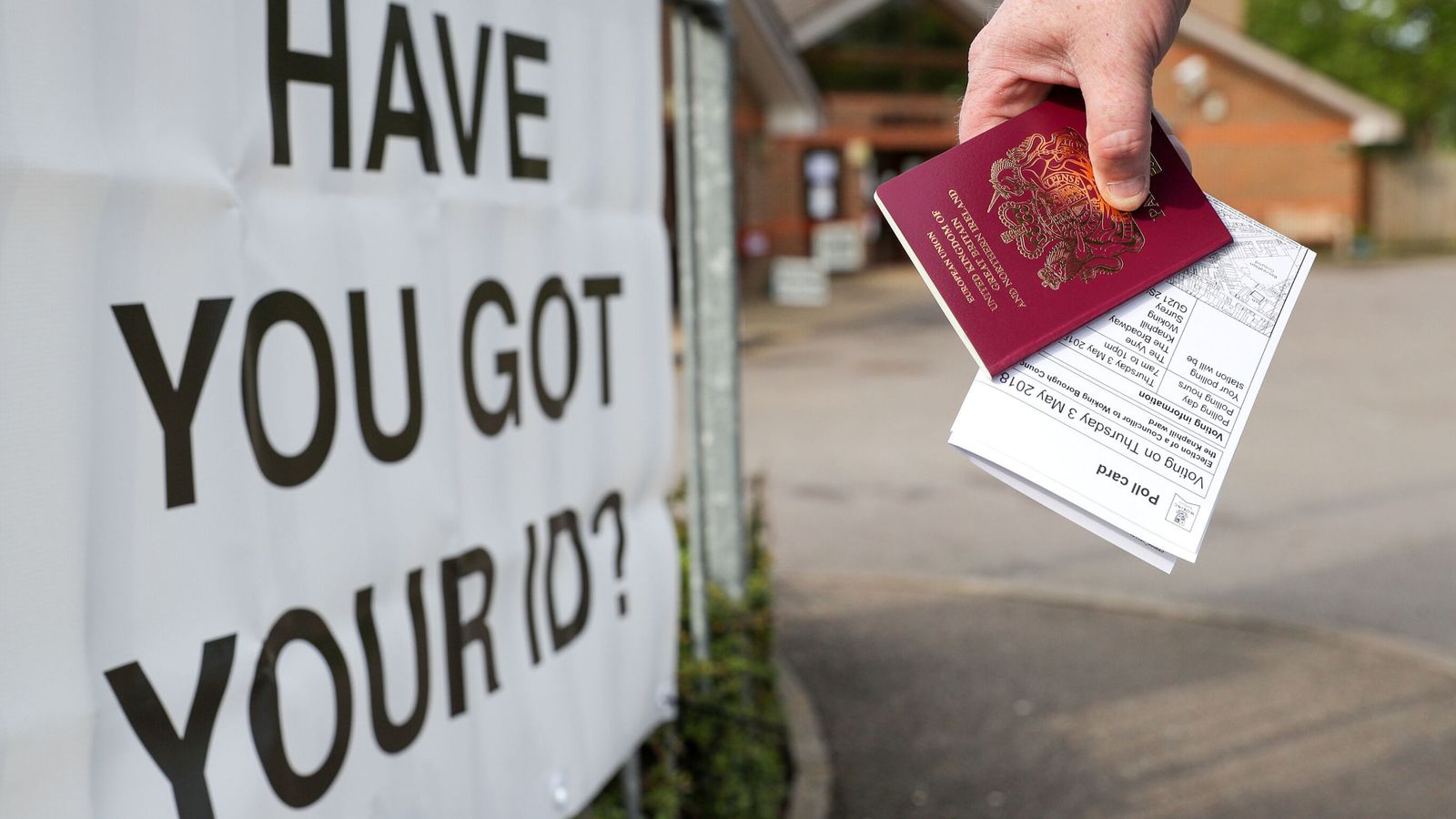The government has defended its decision to not allow young adult railcards to be used as voter ID – despite travel passes for older people being eligible.
The council elections on 4 May will be the first time that people taking part in a vote will need photographic proof of who they are.
But there have been questions over why some forms of ID – like an older person’s bus pass or a 60+ Oyster card – are being accepted, but the same is not true for identification like a student Oyster card or a young person’s 16-25 rail card.
Michael Fabricant, the Conservative MP for Lichfield, asked the government for the reason why a young person’s railcard is not valid in the elections.
‘Massive row’ at Scottish Tory Conference – Politics latest
In response, levelling up minister Dehenna Davison said: “Young person’s railcards are generally offered in both digital and hard copy formats and, although it is intended that digital formats may be accepted [in] future, the government did not specifically include digital format documents for the roll out of the policy, in order to support its effective delivery.
“Allowing the hard copy version of a young person’s railcard but not a digital version could lead to voter confusion.”
She also noted that in trials, in the Surrey commuter town of Woking, older people were more likely to have travel-based ID than young people were.
The deadline to apply for voter ID for the local elections has now passed.
Nadia Whittome, who at the age of 26 is the youngest MP in the Commons, told Sky News: “The new voter ID requirement will stop many young people from voting – and it seems that is by design, not by accident.
“The government has given older voters, who are more likely to vote Conservative, a large range of acceptable forms of ID, while providing very few options for young people.
Read more:
Hundreds could be prevented from voting in May’s election, senior Tory says
‘Confusion’ over whether number of voters without photo ID will be recorded
“These changes have never been about stopping voter fraud, which is extremely low in the UK. The government wants to make it harder to vote, particularly for people from a range of marginalised groups, in a desperate attempt to cling onto power.”
Recent research from the Electoral Commission showed that young people are the least likely to be aware of the voter ID requirement.
Click to subscribe to the Sky News Daily wherever you get your podcasts
Ms Davison pointed out that 98% of the electorate already own a photographic ID – either in date or expired, with both acceptable.
It was noted that identification which is part of the “Proof of Age Standards Scheme” is also acceptable.





